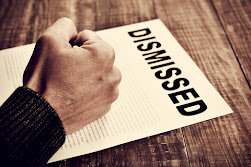Haynes and Boone, LLP v. NFTD, LLCSupreme Court of Texas, No. 20-0066 (May 21, 2021)
Justice Bland (opinion available
here)
Landry’s, Inc. v. Animal Legal Defense Fund
Supreme Court of Texas, No. 19-0036 (May 21, 2021)
Justice Blacklock (opinion available
here)
The SCOTX issued two long-awaited decisions clarifying the scope of important immunity protections for attorneys—attorney immunity and the judicial-proceedings privilege.
First, in Haynes and Boone v. NFTD, the Court expressly confirmed for the first time that the attorney-immunity doctrine applies outside the context of litigation. The doctrine, previously outlined and applied to litigation and “quasi-litigation” matters in Cantey Hanger v. Byrd and other cases, immunizes lawyers from claims by non-client third parties based on actions those lawyers take on behalf of their clients. In clarifying the scope of the doctrine, the Court has now held it operates “in all adversarial contexts in which an attorney has a duty to zealously and loyally represent a client, including a business-transactional context,” assuming the conduct at issue is the kind of conduct the doctrine is intended to protect—that is, “the provision of ‘legal’ services involving the unique office, professional skill, training, and authority of an attorney.”
The Court’s ruling was not unexpected, but will provide welcome certainty among non-litigation attorneys regarding the scope of their immunity. Questions remain, however, about whether the lawyer’s particular conduct on which a claim is based is the “kind of conduct” the doctrine should protect. The Court remanded the NFTD case for the court of appeals to consider whether any of the lawyer’s conduct at issue there was non-lawyerly in nature, so as to remove it from the scope of immunity in light of the other opinion issued by the Court on the same day, Landry’s v. Animal Legal Defense Fund.
In Landry’s, the Court analyzed the scope of attorney conduct subject to protection and held that the attorney-immunity doctrine and the “judicial-proceedings privilege” do not apply to or protect lawyers’ statements to the media about a pending or potential case, or to lawyers’ social media posts about those matters. There, the plaintiff’s counsel delivered a “60-day notice of intended suit” to the opposing party, as required by the applicable statute. But the attorney and his client went further, providing the pre-suit notice letter to the media and issuing a press release and social media posts about it. When Landry’s sued, alleging defamation and other claims, the trial court dismissed. But the Supreme Court reversed.
The judicial-proceedings privilege protects “communications in the due course of a judicial proceeding,” including communications “in serious contemplation of such a proceeding.” Providing the 60-day notice letter to the prospective defendant, as required by statute, therefore is fine and was protected, even if that letter contained defamatory statements. Repeating the allegations to the press and on Facebook, however, is not protected. Similarly, the Court held that providing the notice letter to the media and publicizing it through press releases and social media posts are not covered by the attorney-immunity doctrine either, because that is not the “kind of conduct” the doctrine was meant to protect. That is, “such statements, while sometimes made by lawyers, do not partake of ‘the office, professional training, skill, and authority of an attorney.’” If a publicist and a lawyer issue identical public statements to the press or on social media, why should the publicist be subject to a defamation claim, but not the lawyer? Even though many lawyers do resort to publicity, thinking it will aid their client’s cause, such conduct is not unique to lawyers or a product of legal training or skill. So, they are not protected in doing so by the attorney-immunity doctrine after Landry’s.
The Supreme Court noted that its ruling today falls in line with “the widely adopted rule in other American jurisdictions.” But not all Texas courts, much less all practitioners and commentators, shared that view up to now. The Landry’s ruling likely will prompt many attorneys to revisit their tactics in publicizing allegations made in lawsuits—or at least to think twice before taking to Twitter or Facebook.























